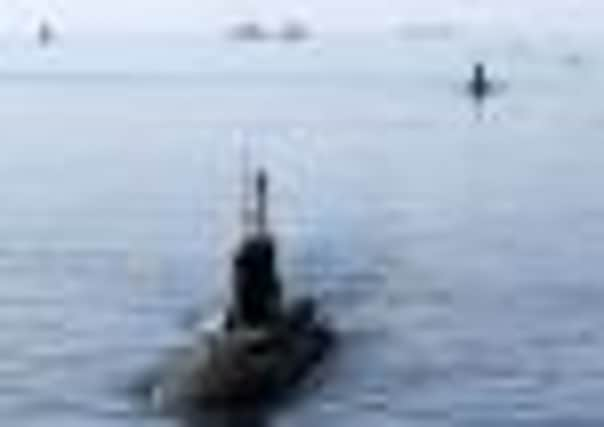Iran warning to US over world’s oillifeline


General Ataollah Salehi spoke yesterday as a ten-day Iranian naval exercise ended near the Strait of Hormuz at the mouth of the Gulf.
Iranian officials have said the drill aimed to show that Iran could close the vital sea route, as it has threatened to do if the European Union and United States enact strong new sanctions over Iran’s nuclear programme.
Advertisement
Hide AdAdvertisement
Hide AdThe strait, leading into the Gulf of Oman and Arabian Sea, is the only possible route for tankers transporting crude from the oil-rich states of the Persian Gulf to world markets. A sixth of global oil exports passes through it every day.


Oil prices rose to over $101 a barrel yesterday amid concerns that rising tensions between western powers and Iran could lead to disrupted supplies.
The price rise came a day after Iran test-fired a surface-to-surface cruise missile as part of its manoeuvres, prompting its navy chief to boast that the strait was “completely under our control”.
Gen Salehi’s comments apparently referred to the aircraft carrier USS John C Stennis, which, along with another vessel, left the Gulf a week ago after a visit to Dubai’s Jebel Ali port.
His warning seemed aimed at further depicting the Hormuz Strait and the Gulf as under Iran’s domination, though it would take military action for it to enforce its threat.
The strait is divided between Iran and Oman, and international law requires both countries to allow free passage through it.
“We recommend to the American warship that passed through the Strait of Hormuz and went to Gulf of Oman not to return to the Persian Gulf,” Gen Salehi was quoted as saying by the state news agency IRNA.
He said Iran’s enemies have understood the message of the naval exercises, saying, “We have no plan to begin any irrational act but we are ready against any threat.”
Advertisement
Hide AdAdvertisement
Hide AdIn Washington, the Pentagon said US warships would continue to sail in the Gulf despite the warning. The US navy presence in the Gulf is in compliance with international law and aims to maintain a “constant state of high vigilance” to ensure the flow of sea commerce, Pentagon press secretary George Little said.
Iran’s sabre-rattling over the strait and the Gulf has come in response to US preparations to impose tough, new sanctions that would ban dealings with Iran’s central bank. That would deeply hurt Iran’s oil exports since most countries and companies use the bank to conduct purchases of Iranian crude. Iran relies on oil revenues for around 80 per cent of its budget, meaning a cut-off would be devastating to its already weakened economy.
The prospect of sanctions targeting the oil sector in a serious way for the first time has hit Iran’s currency, the rial, which reached a record low yesterday and has fallen by 40 per cent against the dollar in the past month alone.
Queues formed at Tehran banks and some currency exchange offices shut their doors as Iranians scrambled to buy dollars to protect the value of their savings.
President Barack Obama has signed the sanctions into American law but has not yet enacted them. The sanctions would be the strongest yet by the US, aimed at forcing Tehran to back off its nuclear programme, which many in the West believe is intended to produce a nuclear weapon.
Iran denies the claim, saying its nuclear programme is for peaceful purposes.
French foreign minister Alain Juppe said yesterday that France wants the European Union to agree on similar sanctions against Iran by the end of the month to show its determination to stop Tehran from developing a nuclear weapon.
Mr Juppe told the French television station iTELE that there was “no doubt” that Iran is continuing with plans to build a nuclear bomb.